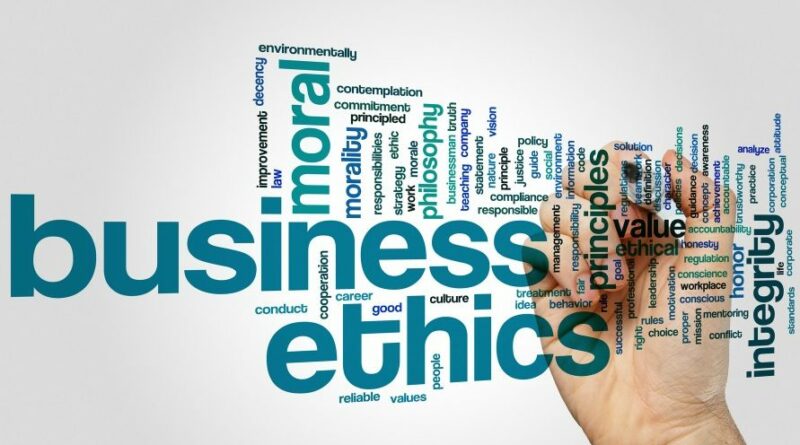How to Make Ethical Business Decisions
Basically, business ethics is a very complex topic and may not be easy to understand what to include and what not to. Often, people would differ on what ethical decisions are and what ethical decisions should rely on. Decisions are part of life and very important to make. Without decisions, life would be stagnant and no progress would be achieved. In fact many decisions made do help to either achieve their objectives or not. In most cases business owners do find themselves fixed in their businesses because of what we can term as ethical dilemmas. The ethical dilemmas may include the desire to compromise on the quality of the jobs and meet the deadlines which may be so close, or to reduce the number of workers in order to achieve more profits among others. Despite these states, we find that excess pressure that business asserts may not bring the time to relax and think and analyze the situations in details. Businesses may not allow time for luxurious lives of reflecting on what to do and this may prompt some people to compromise on the business ideals which may make or break the business. How can someone respond to such situations?
Responding to such situations calls for people to have a sober mind and consider several approaches to some kind of these restricting situations. These approaches may help you evaluate the situation from different perspectives and finally come up with the way forward which may not be of much harm. So, this article explores the different approaches that one can take in making ethical decisions in business. The approach that a business owner may decide to take should be in a position to help him or her work well with the customers in mind as well as the employees.
Ethical approaches to business decisions
There are several approaches that business owner can take to make decisions ethically. Some of these ethical approaches include utilitarian approach, universalism, moral rights and cost- benefit approaches.
Considering the utilitarian approach to decision making, a business owner must focus on the action and the result at the same time. Focusing on the action and the result calls for people to bear in mind that the action they would like to take should result in the best to the maximum number of people. This means that when a business decision is taken using the utilitarian approach, the greatest good should be considered to the greatest number of people. For example, business may decide to employ foreign worker cheaply in responding to the stiff completion which may require that the business to cut on the prices. You may find that without applying this, the business may be forced to layoff citizens of the country or cut on their wages which will not be a good response to workers. So in order to help the situation, compete and stay in the market, the business may be forced to adopt this policy (Debra, 2006).
Secondly, a business may decide to carry out decisions in-line with the moral rights. This approach relies so much on the moral principles without considering of what the consequences may turn out being. From the general view, there are some actions that are considered to be right or wrong. When faced with the situation that the competition is very stiff and you can not stay in the business, it is ethically wrong to pay your employees below the living wage. However, for the sake of the business, the business owners may decide to pay the low wages or close down the business despite what people, including your competitors may say or do.
We also have another approach to ethical decision making that can also be applicable in business. The universal approach to decision making is the same to the golden rule and basically involves two simple steps. One can decide to determine whether the decision he or she would like to take should apply to everyone under all circumstances and secondly considering whether the rule should be implemented for you by some party or yourself. For instance, if the only way to go in competition is to cut down the wages, then, there would be no alternative; everyone in the business must face it anytime the completion becomes stiff. Or if the best way is to compromise on the quality of the goods at the expense of customers then, every time competition is stiff, the value of goods has to be compromised.
Lastly, we have the cost-benefit approach to the business decisions. Under this approach, the business has to weigh the cost and the benefits of taking and not taking a certain action. Whichever out weighs the other should be adopted. For instance when considering taking action on the increased completion and in mind the business would like to compromise the quality of the products or cutting down on the employee’s wages, the business should consider the impacts that either side would have on the business. Consideration should also be on the whether to take that action or not and what consequences will the business face should the action be taken.
Conclusion
Businesses have very complex climate globally and ethical decisions may be very difficult to take. But as a business owner, people will always be expecting you to make decisions especially when things are not good and an abrupt decision is needed. However, these models that I have tried to explore may help a business owner to come up with an action that will be most appropriate. In such cases, business dilemmas may be solved quickly and the action that will be taken can be considered to be ethically correct.
Apart from just looking at the results, one should also learn from the past mistakes. Managers or the business owners should always be vigilant and reflect on the outcomes of their previous decisions before making another one. It is very normal that there is no one who can make perfect decisions consistently but when one makes consistent profitable decisions, he or she stands a better chance to move heights in the business.
References
Coon, D. (1986). Introduction to psychology: exploration and application (4th ed. ed.). St. Paul: West Pub. Co.
Debra S. (2006) Making ethical decisions in business in Portland, Conn. July/August — Vol. 84, No. 6
Monahan, G. (2000). Management of Decision Making. Cambridge: Cambridge University Press.




